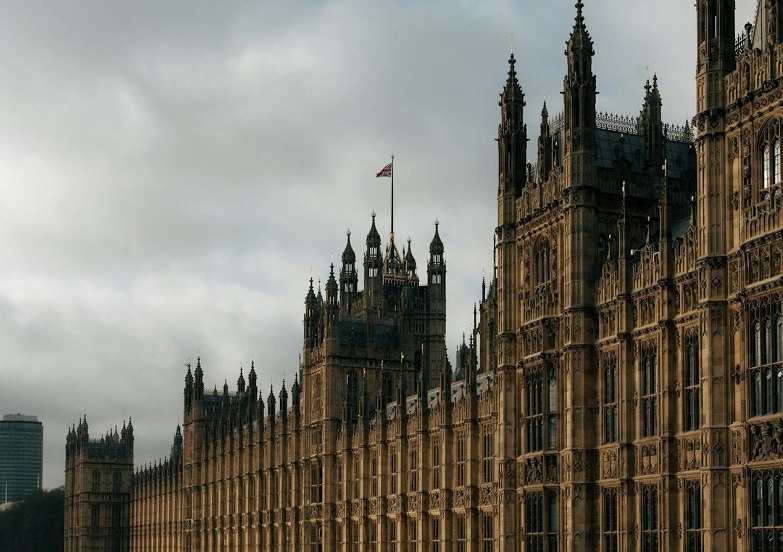The industry has reacted with early comments after the UK Chancellor Rachel Reeves delivered her Spring Statement that appears at this stage to have not furthered tax rises which featured in the Autumn of last year.
Sarah Brown, Chief Actuary, Gallagher’s Benefits & HR Consulting Division, UK, said: “Pensions were never going to take centre stage in today’s Spring Statement, especially with big-ticket reforms like the Pensions Investment Review and the long-awaited response to the DWP’s ‘options for DB schemes’ consultation still on the horizon.
“The consultation response will finally clarify how well-funded DB schemes can safely unlock surplus funds, but trustees shouldn’t wait until spring to assess their scheme’s funding position. Trustees who plan ahead and explore what a long-term run-on strategy with surplus release might look like for their scheme will be in a stronger position when the new rules take effect.
“At the same time, the Pensions Investment Review is set to push workplace pensions towards investments that drive UK economic growth—potentially a win-win for both savers and the economy. And with the upcoming Pension Schemes Bill, we’ll see new measures to ensure pensions deliver real value for money, alongside long-overdue plans to consolidate small, forgotten pots.”
On IHT reforms she further said: “While tax hikes may have been avoided today, the OBR’s forecasts could lay the groundwork for tougher fiscal decisions that impact retirement savings down the line. One major change is already coming with pension pots falling within the inheritance tax (IHT) from April 2027. Many older, wealthier individuals had planned to pass unspent pensions to their children, but with the looming IHT charge, many are now choosing to spend rather than save, shifting the retirement planning landscape.
Turning to the Triple lock, she also said: “Despite reports that the triple lock is close to being axed, it remains intact for now, even as the Chancellor grapples with spending cuts and tough fiscal choices. However, its long-term sustainability is clearly under increasing scrutiny. The challenge is balancing fiscal responsibility while ensuring retirees have adequate incomes. Although means-testing could cut costs by providing support to those who need it most, this comes with complex administrative hurdles. While reform seems inevitable, the real question is how we can keep the policy affordable as the costs mount up.”
Jon Greer, head of retirement policy at Quilter said; “The OBR’s latest forecasts confirm we are fast approaching a bizarre tax cliff edge for pensioners. With the state pension forecast to rise by 4.6% in April 2026 under the triple lock, it will land just below the frozen personal allowance.
“That leaves the UK potentially only one year away from pensioners having to effectively hand a portion of their state pension back to the Exchequer in tax, which to many would seem perverse.
“Reeves had committed to keeping allowances frozen until 2028 but, depending on what the actual uprating figure may be, could look to avoid the full state pension exceeding the personal allowance via the Autumn Statement later this year.
“What was intended as a mechanism to protect pensioners from poverty is now colliding with fiscal drag. This situation is the result of the triple lock producing some significant increases in the state pension due to high inflation and earning figures while the government has failed to uprate tax thresholds in tandem.
Greer further said: “It also adds to the debate of what looks like the inevitable review of triple lock. One potential reform to the triple lock is to link increases to earnings, with a temporary CPI indexation when inflation exceeded wage growth but generally falling in line with long term wage increases, helping align pension growth with the wider economy and creating a more predictable and affordable system. Any change must be handled carefully.
“The state pension is the single largest area of welfare spending and a vital source of income for millions. But if Labour is serious about building a fairer and more sustainable system, it cannot ignore the long-term pressures the triple lock presents.”
Steve Berridge, technical services manager, IFGL Pensions said: “The Labour Government’s first budget, last October, packed quite a punch for the pension world and it’s fair to say that some investors are still feeling a bit concussed today, trying to understand how the proposed changes to Inheritance Tax and the Non-Dom regime will affect their private pensions. It therefore may have surprised some people that today’s Spring statement was pretty much silent on the subject of pensions.
“To be fair to the Government, they had announced on 22 January that their consultation on the subject of Inheritance Tax and pensions had closed and that they would announce the results and full details of the changes later in the year. Given that the consultation received hundreds of responses from industry and tax experts highlighting grave concerns, they have a good amount to wade through in the meantime.”
Neil Mehta, portfolio manager at RBC BlueBay said: This Spring statement does little to claw back investor confidence in the government’s economic agenda. Fiscal ‘headroom’ was restored after being wiped out but assumptions on future growth, borrowing costs and the impact of new policies continue to err on the optimistic side.
“Growth forecasts were lowered in the near term but upgraded for subsequent years, which feels reminiscent of another bout of can-kicking (to the next budget). The UK economy is simply not set-up for potential growth close to 2%, given productivity trends and a mediocre track record on implementing supply side reforms. Housing reform is a good start, but what’s required is a ‘big bang’ of sorts that includes energy and labour market policies to shunt growth higher.
“Unfortunately, the government continues to box itself in regarding policy choices, and we could find ourselves with a sense of deja vu in a few months ahead of the full budget later this year, with the government scrambling to find new ways to save (or generate) money, as the political and economic choices narrow further.”
Chris Cummings, Chief Executive of the Investment Association, said: “We welcome today’s commitment from government to boost the culture of retail investment, including looking at options for ISAs reforms that will get the balance right between cash and equities to earn better returns for savers. Our industry has long called for the government to create a culture of inclusive investment, which will see more people benefit from investing, and we’re pleased that the government has now heeded this call.
“Today’s statement also reiterates the central role of investment in delivering UK growth, in light of the challenging circumstances facing the UK economy and households. Investment managers are already playing an active role to deliver growth by channelling £1.4 trillion to UK businesses, infrastructure and social projects annually. We agree with the Chancellor that innovation is a key enabler of growth and are delivering on this through our FinTech accelerator and work with the government and regulator on fund tokenisation and AI.”
Dan Boardman-Weston, chief executive at BRI Wealth Management, said: “The Spring Statement was largely as expected, with growth expectations being cut, defence spending being increased, and the evaporated fiscal headroom being restored by cuts to benefits and central government. Markets have shrugged off the announcements as they have bigger things to concern themselves with at the moment. The UK remains in a precarious position and deep structural reform is required to set the country back on the right track. Whilst a number of the headwinds that the country has seen in the past few months are not the fault of the government, a number are, and little that we’ve seen or heard will deliver the change that this country requires.”
Katharine Arthur, Partner, HaysMac said: “The Autumn Budget was the largest tax-raising Budget in over three decades, and the effects are still leaving individuals, businesses and the wider system reeling – even with many major tax changes only starting to take effect from next week. While the lack of further tax rises today is undoubtedly welcome, the reality is that the existing burden is still weighing heavy on thousands of businesses and individuals alike.
“The investment into cutting edge technology to crack down on tax evasion very much reflects an anti-avoidance theme we are noticing under this Government, and could support an under-resourced HMRC in closing the current tax gap. However, the absence of updates or clarity on whether changes to the non-dom regime will be softened is naturally disappointing. We are already seeing on-the-ground impacts of the changes with several wealthy individuals leaving the UK, and confirmation on how the final reforms could take shape is essential for advisors and individuals alike.
“Nevertheless, there are merits to the Chancellor’s commitment to just one major economic event. Any tax changes can result in significant upheaval to the system as a whole, and require Parliamentary consultation and HMRC to adapt to the practicalities. By sticking to the plan of just one major Budget each year, the Chancellor can at least offer more certainty and stability from a tax perspective, which is helpful in a time of wider economic uncertainty.”





